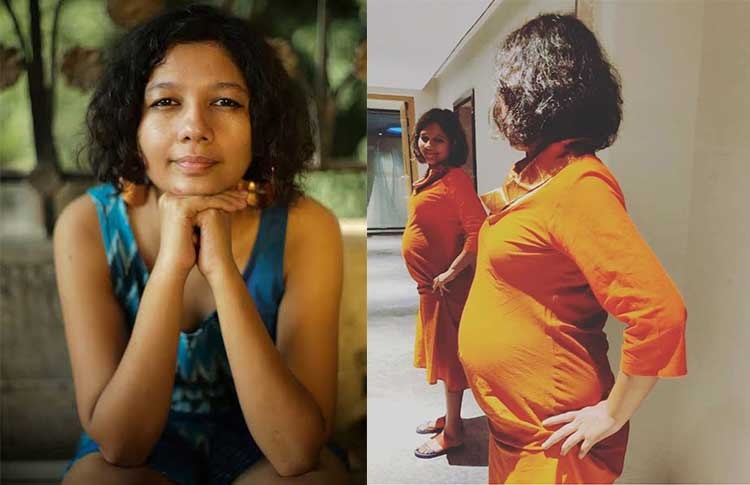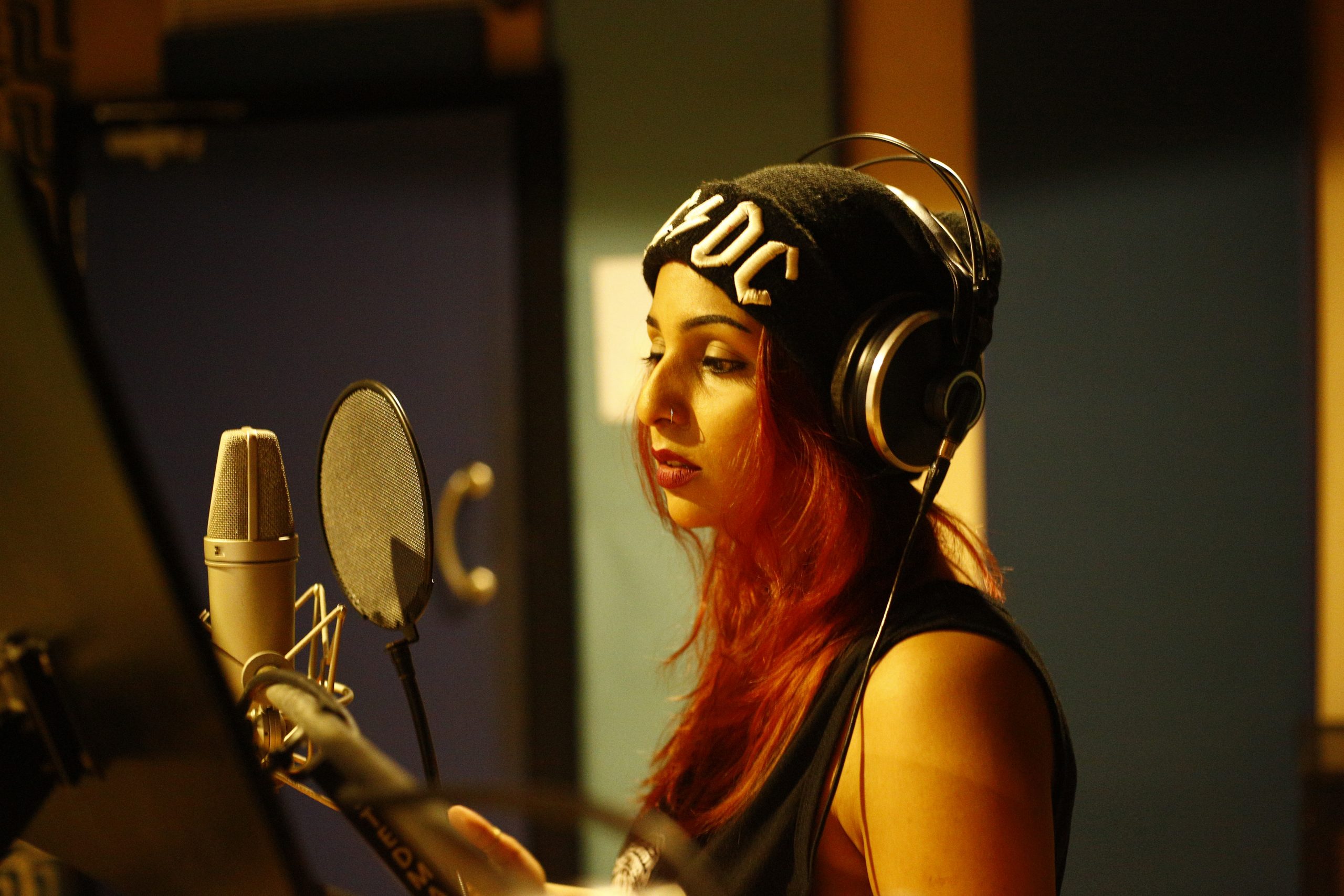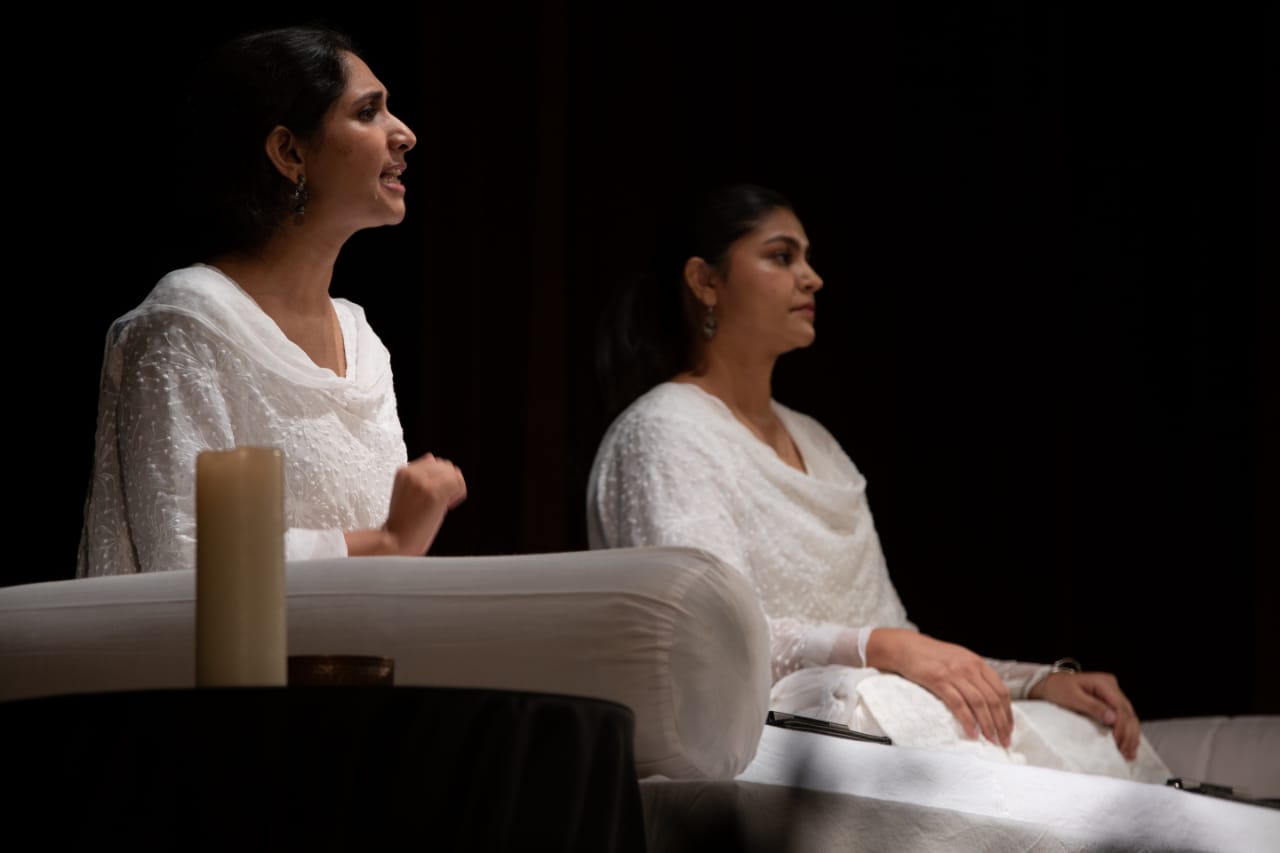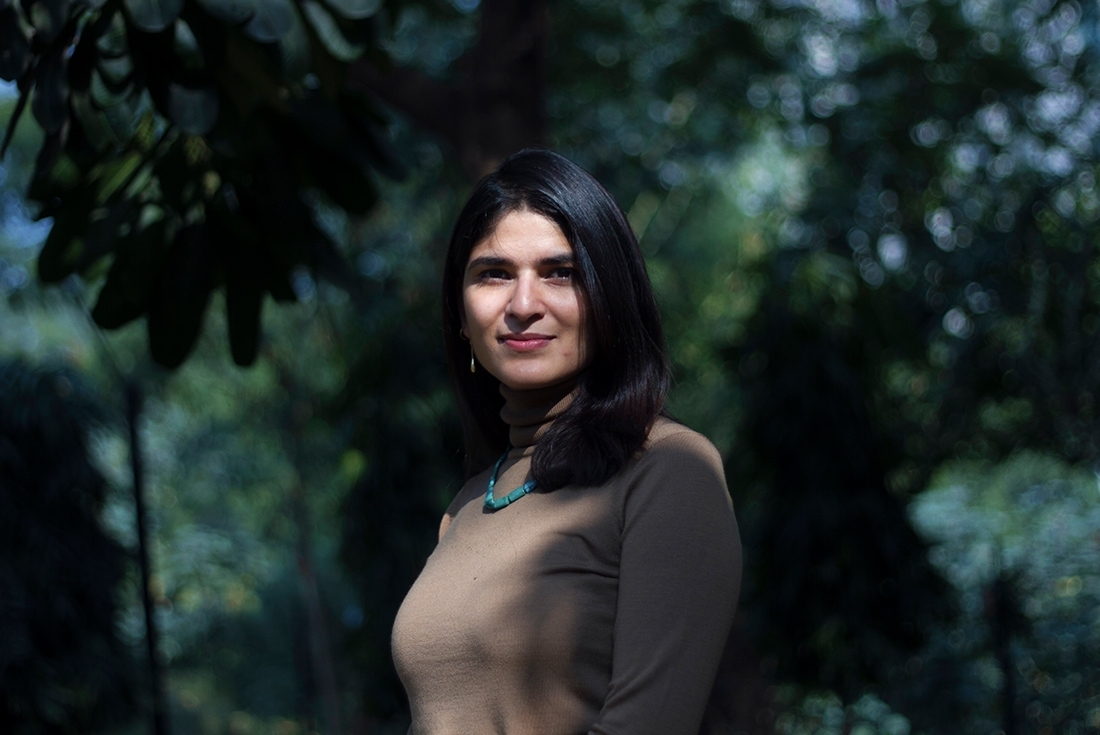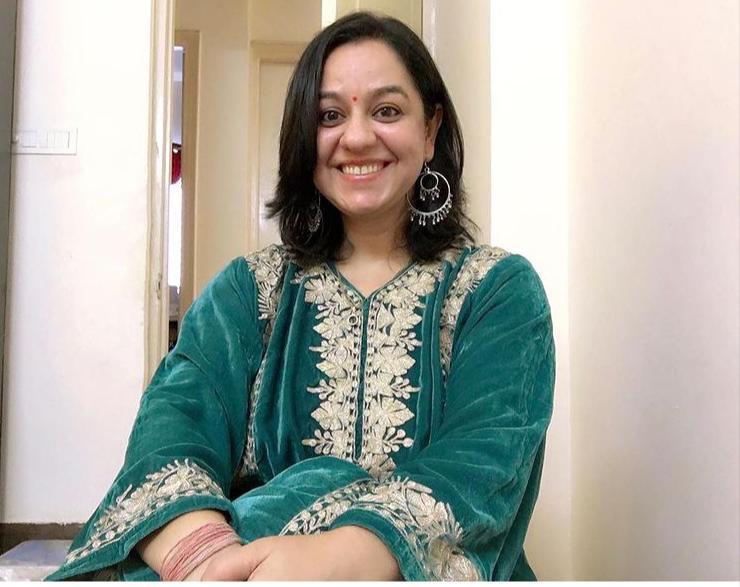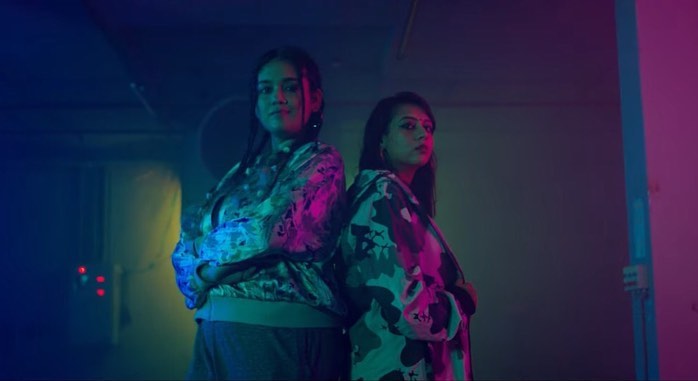Priya-Alika Elias On Her Struggle With Bulimia And Writing So She Can Talk To Indian Women
- IWB Post
- June 15, 2019

Trigger warning: Eating disorder
“Haww, how can you say such a thing? What will people think? Girls can’t be so frank, you’ll be called besharam.”
Every aspect of a woman’s life is controlled, is confined to rigid standards and anyone who dares step an inch beyond that figurative line is promptly labelled ‘besharam’ and is considered to have a ‘loose character’.
These and many others are issues faced by Indian women that author Priya-Alika Elias discusses in her book ‘Besharam’. Named one of the ‘Amazing Women to Follow on the Internet’ by Paper magazine in 2016, Priya is a lawyer and a writer.
Her book comes from her personal experience of navigating the turbulent and often malignant waters of this world. Her story is that of strength, bravery, and, acceptance, and in an interview with IWB, she shares parts of her journey with us and the things she’s learnt while on it. Excerpts:
Your book about being a young woman is called Besharam, and quite aptly so. Tell us about what you’ve been called besharam for?
One of the things is cigarette smoking at the airport. I remember I was in the smoker’s lounge and an older Indian man came up to me and said you’re smoking a cigarette, and I said yes and he said but you’re an Indian girl and Indian women don’t smoke. That was one incident. I’ve been called besharam for the clothes that I wear, for going out at night, for drinking a beer, if I talk about having a sex life, even as an adult woman, or if I say that I’m not a virgin. People are like how can you talk about such things, don’t you have any shame!
Often so many things are just enforced on people by society and family members. Were you pressurized to do something that ‘good Indians’ do that you didn’t agree with? How did you respond to such a conflict?
Personally, I wanted to study English as the major in my college and my parents and a lot of other people said why don’t you do economics or go to law school instead. I wanted to do a PhD in English and be a writer but I wasn’t sure if these sorts of careers were available to me because every Indian person around me, not just my parents, told me to do a ‘professional’ course. But ultimately I chose my own path.
One of the most taboo topics in Indian society is sex and women get called besharam for even talking about it. You recently posted on Twitter about men learning to have sex from watching porn. How is this damaging and how does this reinforce toxic masculinity?
We don’t prioritize female pleasure during sex and men aren’t taught to care about a woman’s pleasure. The only models that men have for sex are typical channels like porn. In most porn videos you don’t see a woman orgasming, the man is generally very rough and the focus isn’t even on the woman’s face. This has led to a very toxic attitude of men approaching sex purely for their pleasure and using women’s bodies as objects. When you reproduce these things in your actual sex life, you are reinforcing this notion that sex is not for women; it is just something a man does to a woman rather than it being a shared, consensual, enthusiastic, or even a sweet activity.
To put a stop to this we have to start talking about it, first of all. Part of the reason I wrote Besharam is because I think Indian women are so silent on these issues, a complete silence because we aren’t used to speaking up about these things.
Firstly, all women need to get used to the idea that our pleasure is also important. Especially in the bedroom, they should just discuss their preferences with their partners. Every woman is different, sexually speaking, and everyone should tell their partners that I like certain things, can we try that instead? Men also need to get used to the notion that we also want to have sex and our desires count as well, not just theirs.
How do you want young girls to discuss this topic?
I think we need more communities of young women; social media is great in my opinion because, for the first time you have a sense of solidarity, you can find friends there. And we should talk to each other, let’s not pretend we are all ‘good Indian girls’. Let’s honestly tell each other about our problems, and things like having a boyfriend or having had sex or needing birth control, etc.
We won’t be able to overcome our problems individually because we don’t have mentors we can share with, we need to be honest with other young women and not compete with them because we need female friendships, now more than ever.
One of the messages in your book is that it is okay to put yourself first without feeling guilty. Tell us about how people reacted when you did so.
Selfish is something that Indian women get called very easily for putting themselves first. If you don’t put your desires after.. say… pleasing your husband or elders in the family, if you don’t do the right thing, or if you don’t have the dinner waiting, etc.
One thing is that I don’t want to get married or have kids and I don’t know if that’s going to change. Everyone said that you have to have kids and when I say I don’t know if I want kids, the immediate response from Indian people is “well, that’s selfish.” My reply to that is even if it is selfish, so what? I can’t even put myself before some hypothetical children who aren’t born yet.
In your book, you also discuss your struggle with bulimia. Tell us about the moment when you realized you had bulimia and how did you move forward after that?
I feel that with an eating disorder, one never quite gets over it; it’s always going to be lingering in the background. Once I realized I had bulimia I admitted it to my parents and friends and wrote about it.
Admitting is the biggest part of any addiction or disorder. So once I’d admitted it to myself I felt a sense of peace, it wasn’t as if I had solved the problem and it didn’t go away but once I’d admitted it I felt like now I could deal with it slowly.
And from then on my journey was about learning to love my body no matter how it was. And that took a long time; it was a journey of years but finally I was in a place where I was able to live with it and think that ‘I have an eating disorder but let me try and work on self-acceptance and loving myself, no matter what weight and size I am.’
Everything got easier after I admitted it to myself. Of course, it wasn’t an easy road, there were slip-ups and what not but admitting it was the biggest step and everything fell into place slowly over the years.
You mentioned that this was a journey spanning years, during this time who was your biggest support?
My biggest emotional support has definitely been my friends, a lot of my online and real-life friends are women. Every woman has such a complicated relationship with her body and a lot of us are told to change things, so I was able to speak very freely about it with them. And they were a big support because they told me you are beautiful the way you are, but I can relate to the struggle.
I was able to share freely with them and they, in turn, shared their stories with me. Learning their journeys of acceptance and love has been a huge emotional support to me.
I have friends with eating disorders and you have to find your community. Because the thing is no matter what your problem is, in the world, there is already someone else who is going through it. If you’re able to find people who are dealing with the same things you don’t feel alone. Not feeling alone is the biggest part of the battle; you suddenly have help and guidance. So I would say to any girl going through something like this, you are not alone. Reach out to others because handling it yourself doesn’t teach you how to deal with it.
How can one offer support to someone in their life dealing with such issues?
Depression, anorexia, bulimia are all mental illnesses and I think the biggest problem is that we don’t accept these as serious illnesses. We’re told just get over our depression, drink water, exercise. Why would anyone have a problem with eating, just eat your food and don’t think about it, is what people say.
If you really want to support the people around you, don’t take it lightly. Treat it as a disease just like you would anything else. Don’t push them to do things they are uncomfortable with, just let them know that no matter what they can talk to you. One of the biggest problems is that people don’t feel like they can talk to their parents or others about these things. Let your loved ones know you are always there for them without any judgment and that you’ll always take their problem seriously and provide emotional support.
The patriarchal society we live in often conditions women in such a way that women criticize each other the most. Have you had to deal with this?
Because of patriarchy and internalized misogyny, women do criticize other women, and so many have come up to me and said this is what people are saying about you, you’re being slutty, don’t wear that with your body size, you look fat lose some weight.
Every kind of criticism that you make about a woman has been made to me by other women. It was very difficult at first and I felt very ashamed. But now I am finally at a place in my life where I can discard these critiques, and to anyone who tells me I am not the way I’m supposed to be, I tell them that I am who I am and am not concerned with what other people think of me. They are trying to do patriarchy’s work for it but I understand where they are coming from, they have also been controlled and criticized and they’re just passing it on. I hear their input and disregard it because I know it’s not about me, it’s just them reproducing the toxic pattern.
As soon as people hear feminism they just shut off, how can we make people receptive to these discussions?
It is very difficult to have conversations about this with people, they often say, ‘oh you know I’m not a ‘feminazi’ and I believe in equality, feminism has gone too far’. You see such people all around you and it’s very difficult to make them listen, but I think one way to do is – don’t put your agenda at them, ask them why they think what they think. Gently push them, not on their conclusions, but on the basis of which they came to that conclusion.
A lot of the time you find that these people are making very poorly-informed decisions and that a lot of these biases are unconscious. Say that I understand you are opposed to this but can I ask you what made you feel this way first. I think this is the best way to get them to discard these conclusions or to at least have a more productive conversation.
Speaking out against their family’s sexism comes at a great cost for some, how would you encourage women and young girls to persist despite these hardships?
I feel that confidence is something that young girls need to learn, because of our culture so many of them feel that if I speak I won’t be listened to or I can’t say anything to my elders because their voice is more important than mine.
If you are going to call out somebody on their sexism, which is important to do, you have to learn that what you say matters. It’s okay if they don’t listen to you but you still need to make your voice heard. Young girls need to learn to call out their family’s sexism regardless of whether or not they listen and reconsider.
How has your book been received by the women in your life?
I’ve been very honoured and flattered by how my book has been received by the women in my life. They have said things like ‘this book makes me feel like I’m not alone, like things I didn’t know before have been articulated by you’. And not just young women, the other day an older woman came up to me and said thank you for having the courage to say what I’ve always thought but never said. And that’s amazing to me, I didn’t necessarily write it for older women but I feel there was a universal female experience that resonated with a lot of women. And it’s amazing because that is what I wrote the book for, to speak to Indian women.
- 0
- 0





